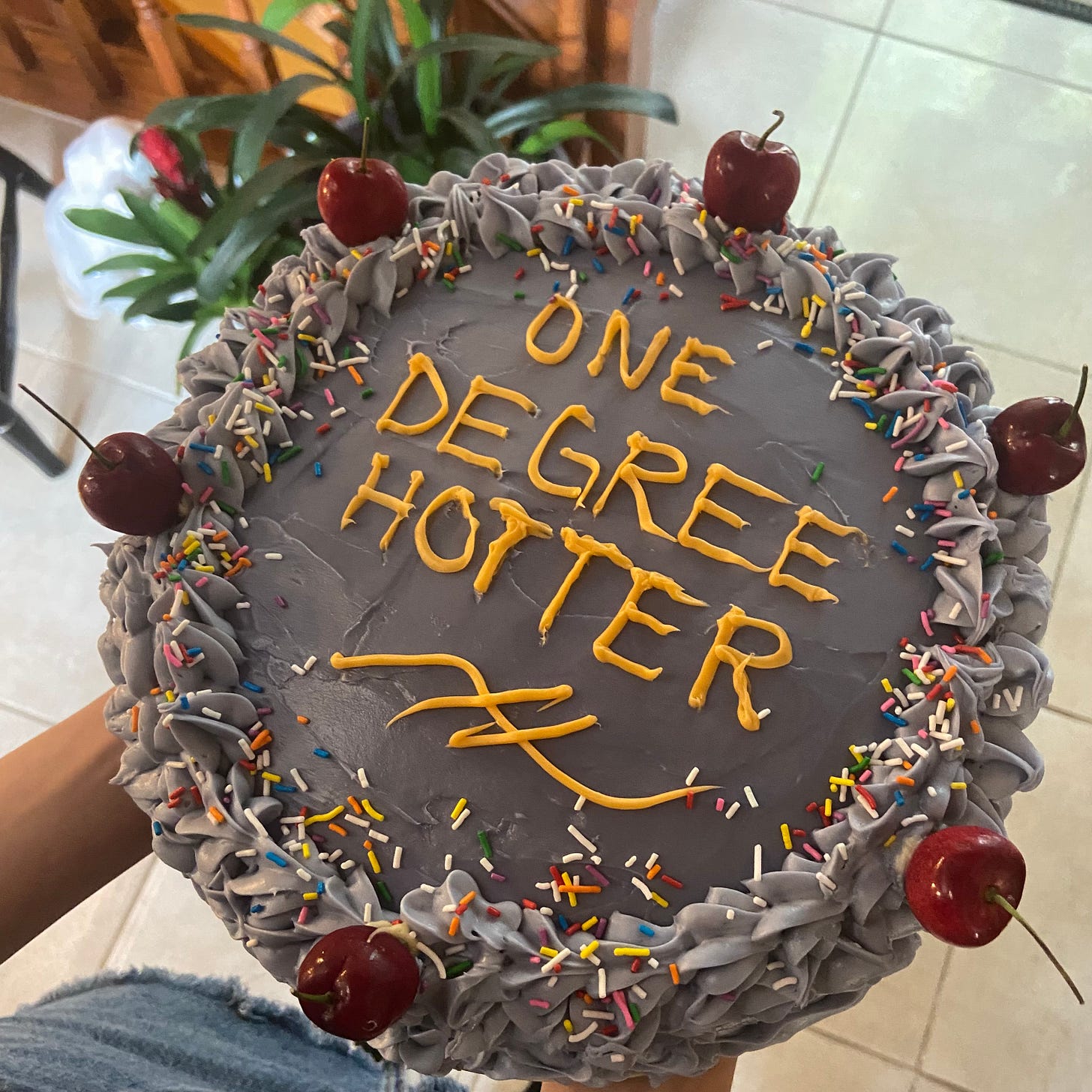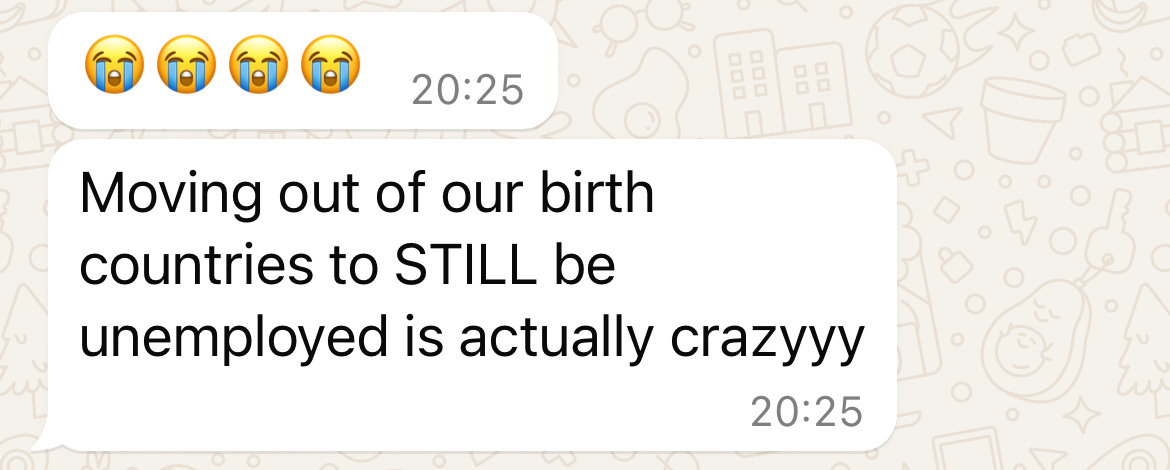005. long live the liberal arts degree
Because following your dreams is cheaper than therapy
Weddings, birthdays, and funerals all have one thing in common. Besides the very obvious point that they are obligatory events that mark our calendars (and our entrance into adulthood)
For university-bound students, it's the place where you can almost guarantee being asked- "So what will you study?"
It’s a question that can be posed by anyone but usually falls on the tongue of a 50-something-year-old family friend or relative you rarely see. He works in accounting, sales, or some other obscure industry you are vaguely familiar with.
The feeling of anxiety and the pre-rehearsed speech describing your plan (followed by your justification) is something those who choose to study liberal arts are all too familiar with.
Communications, sociology, psychology, and political science are often met with very different reactions in these conversations than someone who says something in science or engineering.
In 2018 I started my undergrad, a BA in legal studies. Embarking on 4 and 1/2 years of copious amounts of reading, sleepless nights, essay writing, and a few too many crash-out phone calls to Mom and Dad. I attended what some would describe as a “liberal arts” school. Situated in the capital, it was the first time I felt that what I wanted to study was valued and encouraged. That was a huge benefit, but like many students who studied what I did, we can’t help but feel a sorta inferiority complex.
So, what is a liberal arts degree?
Liberal arts come from the Latin word 'Liberales' meaning 'free' and 'Artes' meaning 'art or principled practice' (Warwick University 2025). It is fair to say that the modern rendition of these degrees does not practice the original version of the liberal arts. Over time it has progressed to meet our needs and a changing societal framework, the very framework these area of studies analyse. However, I argue the spirit of education is the same. The original 7 subjects were the trivium of humanities (grammar, logic, and rhetoric) and the ‘scientific’ quadrivium (astronomy/astrology, music, geometry, and arithmetic) (Warwick University 2025). Today these 7 subjects come in the form of philosophy, economics, sociology, literature, history, environmental studies etc.. that first-year students in liberal arts usually have electives in.
In these courses, students learn a large variety of topics from all the varying disciplines, while learning how to find reputable research, look for gaps in the literature, and understand how one issue has a broad range of implications and an even broader range of opinions.
For example; a student in legal studies, like myself, could take a course called environmental law. Aside from the obvious area of focus being the current legislation (national and international)/ jurisprudence on environmental protection- we also look at what groups are impacted the most by the environment (sociology), what has happened in the past that informs these current policies (history), how the problem differs place by place (geopolitics), what are the economic factors considered or ignored by the policy (economics), or what discourse ensued between lawmakers or theorist (political science). This is just to name a few, and I did not even touch on the fact that studying something such as environmental law most definitely has branches in STEM.
“Jack of all trades is a master of none”
A liberal arts student is trained to be a well-rounded student; to not let any stone be left unturned. As a result, what they choose to do for work in the future is rather flexible. It is often implied that flexibility means that the student only has surface-level knowledge of the topic, but it's simply not true.
The skills developed, such as being able to consume large amounts of information quickly and pull out the key points, strong writing skills, oral advocacy, and emphasis on making links between concepts that may be overlooked. Understanding the "landscape" around a topic makes for someone who has a nuanced understanding, with the capability to be an expert on a variety of topics if they so choose.
We all heard the quote "A jack of all trades is a master of none" (thank you, William Shakespeare). But spoiler! It’s taken out of context, and as a liberal arts student, it's my job to dig a little deeper and provide you with the whole quote.
"A jack of all trades is a master of none, but oftentimes better than a master of one" and I think it speaks to my point exactly.
The misquoted version has been used to encourage students to narrow in on a subject under the impression that being heavily specialized will equal higher qualification. While this is true for someone pursuing a master's or a PhD, at the bachelor's level I think is counterproductive. By learning about a diverse variety of topics, you build connections between disciplines and discover new solutions and a deeper understanding of problems. Those who study liberal arts are usually aware that the world does not operate in black and white; rather circumstances (historical, sociological, political, psychological etc.) are as complex as the humans who are experiencing it.
In my own experience...
I consider what I studied in the category of liberal arts. The focus was law, but my electives were diverse. It allowed me to pursue my passion for languages, my interests in literature, and the connection between political theory and law, and gave birth to unique research questions. Overall, I feel like a well-rounded student.
This flexibility may not appear very "sexy" due to the lack of concreteness in a student's career plan, but I argue that when we are 18 choosing what to study we know very little about the jobs that are out there anyway. It is only at school do we begin to get a bigger picture of different kinds of careers that may have been overlooked or not considered by your high school guidance counsellor. Many people change their career paths.
According to the Labor Department's Bureau of Labor Statistics, "many Americans who went to school for a specific major do not utilize that major at work. 21% use all of their education, 53% use half or less of the education, and 15% use none of their education in their current job" (Apollo Technical 2024). With all this being considered, maybe the flexibility of a liberal arts degree has its upsides.
What about the real world?
Telling people I liked law most definitely sits on the higher end of prestige in comparison to the aforementioned areas of study but I was still consistently reminded that I "couldn't get a real job" after my degree and that I "would need to do more schooling" once it was done.
This was in juxtaposition to what was being told to my peers in STEM; that they could land a job after undergrad because they chose the practical or valued option. But frankly, this was a lie. The hard truth is that academic inflation is affecting us all, and the idea that studying science is guaranteed a job post-graduation is a myth perpetuated by big STEM (I am joking, not really). Almost all of us who complete a Bachelor's will need to go on to pursue a master's, a teacher's college, or even professional certificates to become "certified" and increase competitiveness in our job applications.
The work of those who pursue post-secondary in STEM is important. They contribute their time to developments that affect our everyday lives. The time they spend honing their skills in their respective area, looking for innovative solutions to pressing issues, all while trying to keep a work-life balance, is admirable. Funny enough, it is also the very thing that those who study liberal arts do; the only thing that differs is the content. Simply put, I wish that instead of "pinning" the two disciplines against one another, we would encourage students to explore both and make an informed decision based on their interests, not on constructed concepts of prestige.
So why not study what you like? If you are going to be "stuck" going to school for 4+ years, is it not better to pursue something you're naturally good at and are passionate about? If STEM is your calling, all the power to you- but what about students who choose liberal arts subjects? Being met with suspicious glares and polite hesitations about your interests doesn't necessarily give a vote of confidence.
Working hard or hardly working?
There are debates about which subject matter is harder, and the hate I have toward this statement cannot be overstated. Alas, it is the problem with comparison. But as my sister shared with me on Facetime last month- difficulty shouldn't equal more respected or reputable. Spoken like a true liberal arts major, and I can't say I disagree.
The discourse around ‘difficulty’ was a constant topic in my Bachelors. Feeling the need to justify that I was working hard was both demeaning and confounding. If we are to entertain this debate let me just say it is incredibly dismissive of the work and dedication of those academics in the liberal arts disciplines. They, too, write dissertations, publish in journals, and attend conferences, all the same as those in STEM. But reap not the same amount of glory.
Let’s look beyond academia, the very people who teach your children, provide you with healthcare or file your taxes might have a liberal arts degree and I can guarantee you they engage in hard work.
So again, I stand here in defence of the liberal arts degree but even more I stand for studying what makes you happy.
Just look at me I studied what I loved and turned out fine. You too can live off pasta al tonno, vending machine espresso, and buying generic brand groceries. Some may say I wrote this with the sole intention of convincing myself that I made the correct decision in pursuing a liberal arts degree; and to that, I say- you are half right!
But in all honesty it’s to the people who continue to pass judgment on those who study liberal arts or those that feel the need to feel superior for pursuing STEM. To those people I say, I will continue to follow my heart’s desire because, in the end, we will end up the same; broke, unemployed, and contemplating another degree.
Bibliography
Apollo Technical. 2024. "Career Change Statistics: The Average Number of Jobs in a Lifetime." Apollo Technical. Accessed March 15, 2025. [https://www.apollotechnical.com/career-change-statistics](https://www.apollotechnical.com/career-change-statistics).
Warwick University. 2025. "History of Liberal Arts." Warwick University. Accessed March 15, 2025. [https://warwick.ac.uk/fac/arts/schoolforcross-facultystudies/liberalarts/prospectivestudents/undergraduate/what-is-liberal-arts/history_of_liberal_arts/](https://warwick.ac.uk/fac/arts/schoolforcross-facultystudies/liberalarts/prospectivestudents/undergraduate/what-is-liberal-arts/history_of_liberal_arts/).




